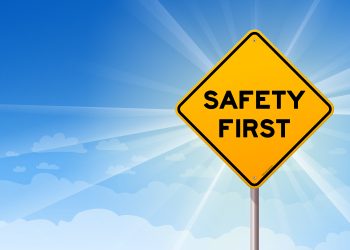International Registries, Inc. and its affiliates (IRI) have provided administrative and technical support to the Republic of the Marshall Islands (RMI) Maritime and Corporate Registries. The RMI Registry, as a flag State, is responsible for ensuring vessels registered under its flag comply with all national and international regulations, including those that address safety and security of personnel and vessels, and the marine environment.
As an active and involved member of the International Maritime Organization (IMO), the RMI Registry works closely with its owners and operators to identify issues and present these concerns to the international community as new regulations are developed.
The International Convention for the Control and Management of Ships’ Ballast Water and Sediments, 2004 (the “Convention”) was ratified on 8 September 2016 by Finland, bringing the registered Member ratifications to 35.14% of the world’s gross tonnage, surpassing the 35% requirement. The 70th session of the IMO’s Marine Environment Protection Committee (MEPC) is scheduled to meet 24-28 October 2016 to finalize amendments concerning compliance timeframes.
The RMI Maritime Administrator has established a Ballast Water Management System (BWMS) team of qualified and experienced personnel to support workable solutions for the industry. Representatives from the RMI Registry will be present at the MEPC meeting in order to express the concerns of its owners and operators and to provide practicable recommendations for the Convention going forward. This includes supporting proposals for delaying BWMS installation on some existing vessels when supported by valid reasons.
The Convention will enter into force on 8 September 2017, at which time existing vessels will need to manage ballast water discharges in accordance with this. In order to continue to comply, existing vessels will most likely need to have installed a Convention type approved BWMS by the first renewal of the International Oil Pollution Prevention (IOPP) Certificate. The RMI Registry allows an early renewal of the IOPP Certificate before the entry into force of the Convention, which allows five (5) years from that point for BWMS installation.
The RMI and others have cosponsored a paper detailing how the Convention experience-building phase should be used to identify problems with the Convention and to allow rapid amendments to the Convention to be made to address any difficulties. A three (3) year trial period is also expected to follow the entry into force of the Convention, allowing for sampling and analysis. During this time, port States will refrain from criminal sanctions or detaining ships. The MEPC could extend this trial period and the RMI will support an extension if needed.
The United States (US) is not a Party to the Convention and has its own BWMS requirements under both the US Environmental Protection Agency (EPA) and US Coast Guard (USCG). For existing ships, the USCG requirements specify that a USCG type approved BWMS must be installed by the next full drydocking. While there are some differences between the EPA and USCG requirements, the EPA requires existing ships to meet the same BWMS standard as the USCG, under the same schedule, and comply with the USCG requirements. As there are no USCG type approved BWMSs, an extension may be requested to prolong the timeframe until the next drydocking. This process is outlined on the USCG website. Together, the IOPP early renewal offered by the RMI Registry and the extension offered by the USCG should provide owners the time needed to select and install a BWMS that meets both requirements.
Source & Image credit: IRI





























































